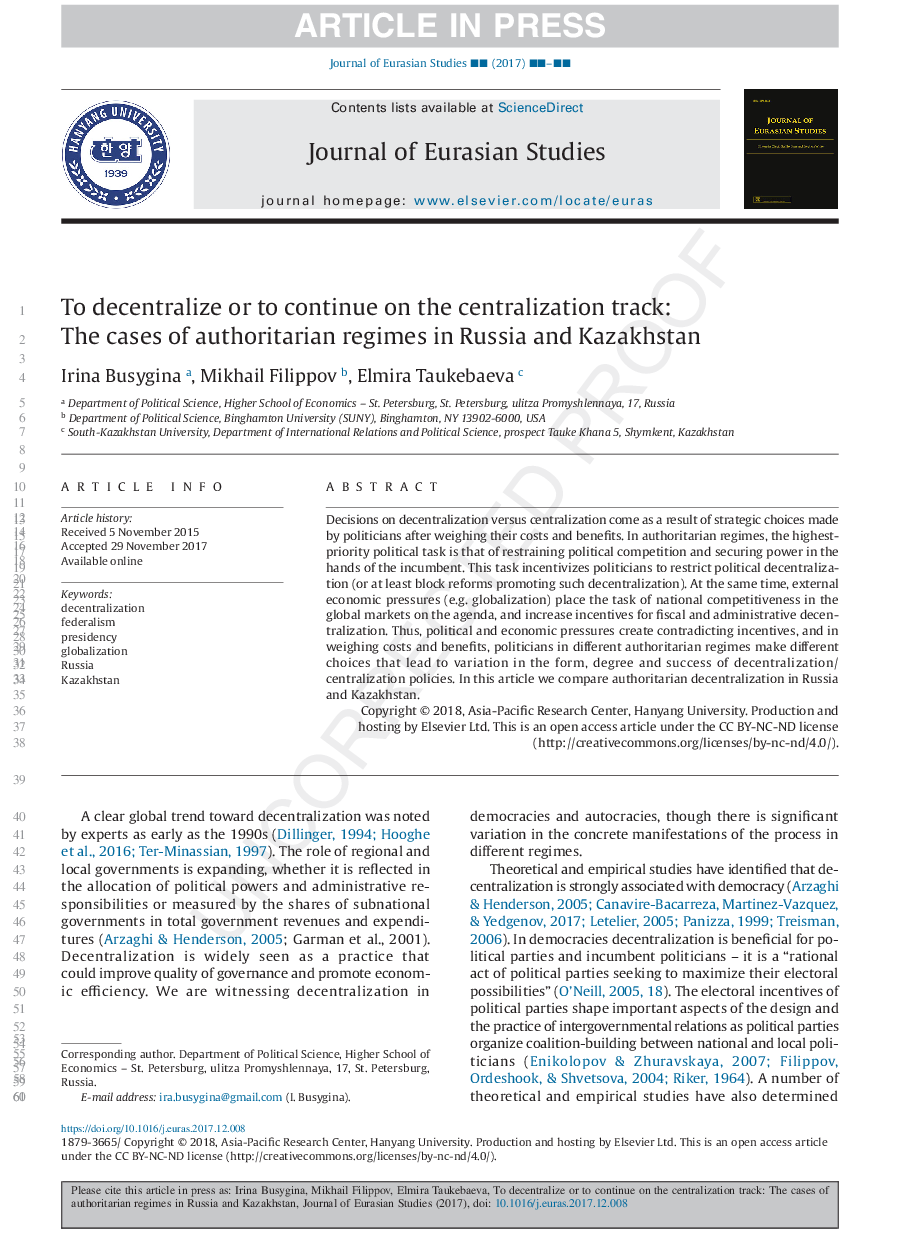| Article ID | Journal | Published Year | Pages | File Type |
|---|---|---|---|---|
| 7537634 | Journal of Eurasian Studies | 2018 | 11 Pages |
Abstract
Decisions on decentralization versus centralization come as a result of strategic choices made by politicians after weighing their costs and benefits. In authoritarian regimes, the highest-priority political task is that of restraining political competition and securing power in the hands of the incumbent. This task incentivizes politicians to restrict political decentralization (or at least block reforms promoting such decentralization). At the same time, external economic pressures (e.g. globalization) place the task of national competitiveness in the global markets on the agenda, and increase incentives for fiscal and administrative decentralization. Thus, political and economic pressures create contradicting incentives, and in weighing costs and benefits, politicians in different authoritarian regimes make different choices that lead to variation in the form, degree and success of decentralization/centralization policies. In this article we compare authoritarian decentralization in Russia and Kazakhstan.
Related Topics
Social Sciences and Humanities
Arts and Humanities
Arts and Humanities (General)
Authors
Irina Busygina, Mikhail Filippov, Elmira Taukebaeva,
